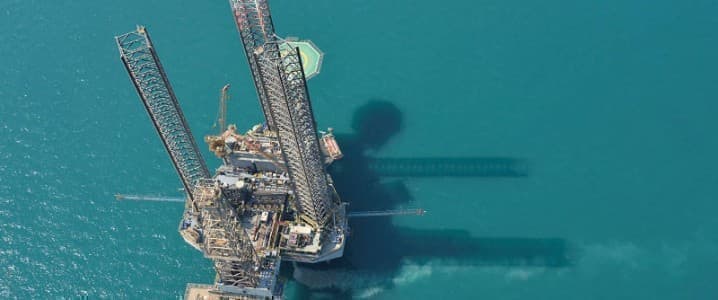Oil demand this year could reach a record high, and there may not be enough oil to cover this demand for much longer. This seems to be the gist of a slew of recent news reports and forecasts about our fossil fuel future.
The 2023 demand forecast was made by the International Energy Agency, which champions the phase-out of fossil fuels. The warnings that a shortage may well be imminent came, most recently, from Aramco’s CEO and the energy minister of the UAE. And now, Wood Mac has joined the band of grim forecasters with a warning of its own, about the world’s top-quality oil and gas reserves.
In a new report, the energy consultancy said that global reserves of both low-cost and low-emission oil and gas stocks are dwindling, and the industry needs to snap into action and deal with the fact sooner rather than later.
Noting that total oil and gas reserves in the world are plentiful, with discovered and potential reserves enough to cover demand until 2050 twice over. But it’s not total oil and gas reserves that are important. It’s the reserves that are both cheap to develop and not too carbon-intensive that are the focus on Wood Mac’s analysts’ attention.
These specific reserves are half of what is needed to satisfy the firm’s base-case oil and gas demand scenario for the period until 2050. Even worse, according to Wood Mac, even in a scenario with much-reduced oil and gas demand because of an accelerated transition to renewables, there will be more oil and gas demand than what Wood Mac calls advantaged reserves of oil and gas.
The problem that the analytical firm has identified certainly has a lot to do with the change of perspective on oil and gas. While all oil and gas are bad for most proponents of the energy transition, there are those who acknowledge that this transition cannot take place if we suddenly stop using oil and gas altogether.
Related: U.S. Natural Gas Prices Have Plunged By Nearly 80% Since August
Fossil fuels are still essential for the running of human civilization. Even President Joe Biden acknowledged it in his State of the Union Address. And the European Union just yesterday failed to agree on a plan to phase out fossil fuels.
Yet because of the transition and the solid backing it has from governments in the West, many oil and gas reserves that would be economically viable under other circumstances are no longer economically viable because their extraction would involve substantial emissions. These have become, therefore, disadvantaged assets, according to Wood Mac. So the industry needs to focus on the advantaged ones to stay in the game.
After identifying the problem, the company goes on to offer a three-pronged solution for the industry. First, oil and gas companies need to renew their portfolios, focusing on the so-called advantaged assets, which are normally newer fields. Second, oil and gas producers need to lower the emissions footprint of their existing assets. Third and final, they could simply reduce their reliance on oil and gas and diversify into alternatives, such as biofuels.
Of course, with global oil demand proving as resilient as it is, there is also another option—developing the resources that Wood Mac calls disadvantaged despite their higher emission footprint. We have a fresh example in the EU, which did not want to build LNG import infrastructure for a long time until it realized it had to.
This might not look like a palatable solution to energy transition advocates, but it would certainly look palatable to everyone who stands to descend into energy poverty if an exclusive focus on top-tier oil and gas reserves leads to global scarcity and the resulting high prices.
ADVERTISEMENT
By Irina Slav for Oilprice.com
More Top Reads From Oilprice.com:
- Is This Shale Giant A Buy After Earnings Miss?
- Turkish Steel Mills Halt Operations To Assess Earthquake Damage
- Attacks On The U.S. Power Grid Are Surging

















